General Pricing – $150 | Student Fee – $75
Use code RECOVERYEDU at checkout. | Must show a valid student ID at check-in.

Use code RECOVERYEDU at checkout. | Must show a valid student ID at check-in.
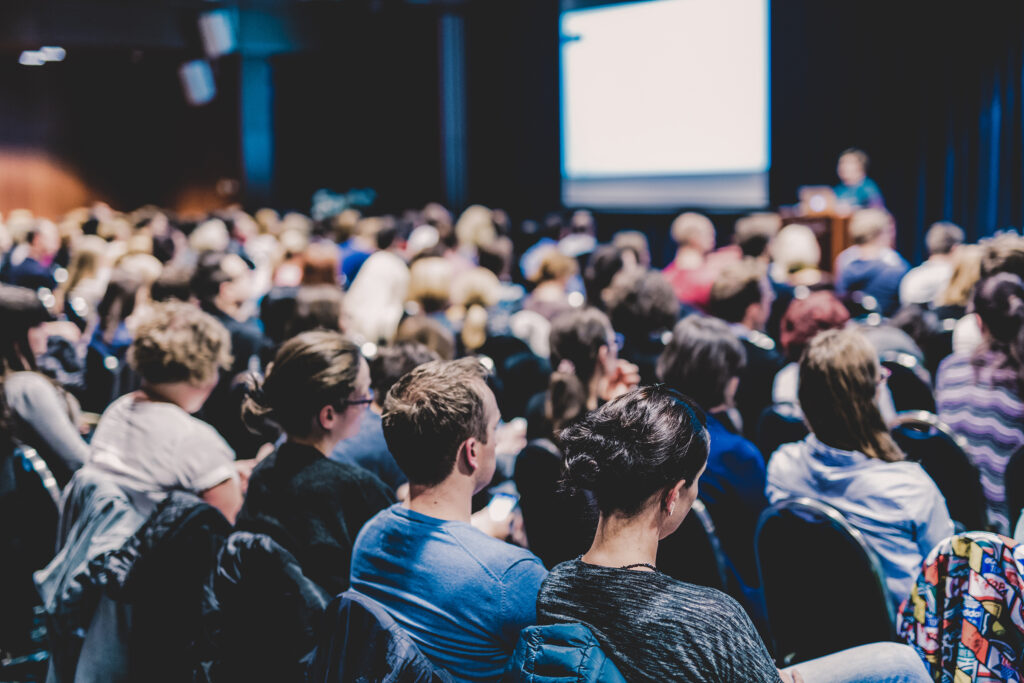
The annual Coming Together Conference enhances public and professional knowledge of Substance Use Disorders (SUD) and Recovery. The event discusses the most current tools and methods of treating SUD and co-occurring mental health disorders, and aims to reduce the stigmas associated with addiction and recovery. Professionals from medical fields, the legal community, counseling, and higher education will be joined by outstanding national experts and spokespersons in a full day of presentations and workshops. The conference facilitates conversation and partnerships with a variety of community organizations, while sharing community resources, programs, and outreach services available for SUD and Recovery in our region.
From Stigma to System Change: Understanding the Power of the Recovery Movement
Navigating Pregnancy and Substance Use with Care and Support
Celebrating Multiple Pathways to Recovery
Integrated Perinatal Care for People with Substance Use Disorder
Integrative Approached to Recovery: Acupuncture for Substance Use Disorder
Navigating SUD on the Streets of Kalamazoo
Promoting the Use of Recovery-Oriented Language: Why Words Matter
“Why am I Here? This is Sus.” Engaging Adolescents in the Precontemplative Stage of Change
Tuesday, October 28 | 5:30 pm – 8 pm
Two one-hour educational sessions – earn CEUs.
Free and open to the public!
Generous selection of hors d’oeuvres will be served.
Wednesday, October 29 | 7:30 am – 4 pm
Up to six one-hour educational sessions.
Registration required.
2747 S. 11th St.
Kalamazoo, MI 49009
In support of improving patient care, this activity has been planned and implemented by Western Michigan University Homer Stryker M.D. School of Medicine and Community Healing Centers. Western Michigan University Homer Stryker M.D. School of Medicine is jointly accredited by the Accreditation Council for Continuing Medical Education (ACCME), the Accreditation Council for Pharmacy Education (ACPE), and the American Nurses Credentialing Center (ANCC), to provide continuing education for the healthcare team.
Credit amount subject to change.
AMA PRA Category 1 Credits™ (8.00 hours)
ACE CE Credits (8.00 hours)
Continuing Nursing Credit- ANCC (8.00 hours)
Continuing Pharmacy Education ACPE (8.00 hours)
General Attendance (8.00 hours)
IPCE Credit (8.00 hours)
Other Learner Attendance (8.00 hours)

Dr. Andre Johnson
CEO, Detroit Recovery Project
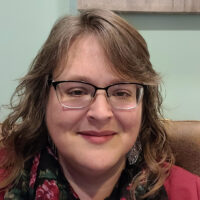
Chandelle Johnson, LLMSW
Outpatient Clinical Director at Community Healing Centers
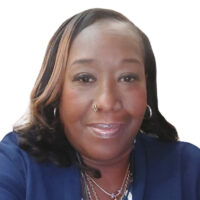
Gwendolyn Hooker
CEO/Founder of Hope Thru Navigation
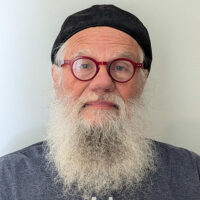
Jim Henry, LLMSW
Ph.D., Professor and Director of the FASTER Program at Western Michigan University School of Social Work

Kara Trainor
Peer Recovery Coach
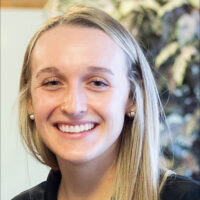
Katie Newby
Community Healing Centers Prevention Specialist
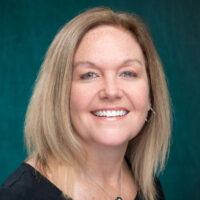
Kristen DeVall
Co-Director of the National Treatment Court Resource Center
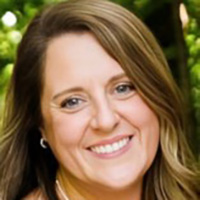
Mandi Schupbach, MS, LAc, Dipl. Ac. (NCCAOM)
Wellspring Acupuncture
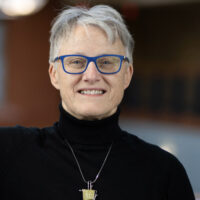
Dr. Maria Muzik
University of Michigan Institute for Healthcare & Policy Innovation
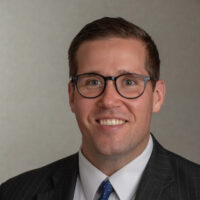
Nic Helmstetter
Associate Professor of Internal Medicine
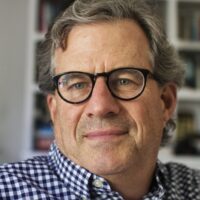
Sam Quinones
Journalist, Storyteller, former LA Times reporter, and acclaimed Author

Sravani Alluri
Director, Street Medicine Kalamazoo; Assistant Professor, Department of Family and Community Medicine
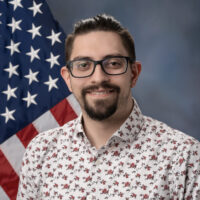
Taylor R. Weststrate Ph.D. LP
Clinical Psychologist, Battle Creek VA Medical Center

Victoria Orbe, LMSW CAADC
Elizabeth Upjohn Clinical Director, Community Healing Centers
Navigating Pregnancy and Substance Use with Care and Support
Dr. Maria Muzik | Professor of Psychiatry and Obstetrics & Gynecology at Michigan Medicine, Co-Director of the Women and Infants Mental Health Program, Medical Director of the Perinatal Psychiatry Clinic, and Co-Director of Zero To Thrive at the University of Michigan Institute for Healthcare Policy & Innovation.

Substance Use Disorder is a chronic medical condition that affects 1 in 6 Americans. Unlike other common health conditions, like asthma or heart disease, stigma around substance use is very high. This is particularly true when people who use substances become pregnant. Pregnant people with a substance use disorder often face the highest levels of stigma and judgment, even when they ask for help. Substance use during pregnancy also comes with many health risks for the parent and child that are important to address. For these reasons, it’s crucial to provide compassionate, supportive, respectful care for birthing people who are also experiencing a substance use disorder. As a community, it is imperative that we resist judging pregnant people and instead help them as they begin their journey towards recovery. This public keynote will discuss best practices—centering empathy and the very best research—for caring for birthing people with substance use disorders. The presenter will also share practical advice for those of us in the community who wish to better support loved ones who are experiencing addiction during their pregnancy.
From Stigma to System Change: Understanding the Power of the Recovery Movement
Dr. Andre Johnson, Founder/President/CEO of the Detroit Recovery Project
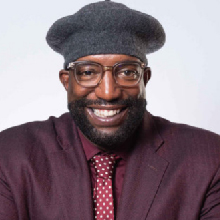
This presentation explores the evolution of the Recovery Movement as a transformative force in behavioral health. Participants will learn how recovery advocates have shifted public perception, influenced national policy, and built inclusive, community-driven systems of care. Grounded in the Recovery Ecosystem framework, the session highlights both local innovation in Detroit and national momentum to replace stigma with empowerment and isolation with connection.
Alisa Otto, Chief Executive Officer, Community Healing Centers
Dominick Gladstone, Coming Together Conference Event Producer


The Least of Us: True Tales of America and Hope in the Time of Fentanyl and Meth
Sam Quinones | Journalist, Storyteller, former LA Times reporter, and acclaimed Author
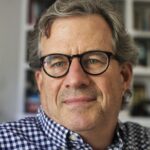
A conversation about the spread of synthetic drugs nationwide, how they change everything we’ve thought about addiction, overdose, treatment and much more. And how solutions reside in the small, local, community building efforts, so often unnoticed yet crucial in building durable solutions.
Celebrating Multiple Pathways to Recovery
Kara Trainor, Certified Peer Recovery Coach, Recovery Management, OnPoint, Allegan County CMH accompanied by a Peer Panel.

In recognizing that individuals are best served by honoring a person-centered approach towards substance use recovery, it is important to value one’s autonomy to choose what pathway resonates with them the most. Traditionally, twelve-step fellowships like AA or NA have been the mainstay as far as providing vital tools, connection, and building one’s recovery capital. Yet, other groups and programs do exist. This break-out session and panel will explore the concept of multiple pathways and preview a few community-based recovery support groups that may be a possibility for individuals preferring an alternative resource for support.
Integrated Perinatal Care for Birthing People with Substance Use Disorder
Dr. Maria Muzik, Maria Muzik, Professor, Michigan Medicine

This break-out session will discuss the epidemiology of OUD/SUD among perinatal population, and the effects of substance use in pregnancy and postpartum on birthing people and their children. We will discuss barriers to care, stigma, and social drivers of health and recovery. We will discuss how to provide state-of-the art, effective patient-centered, trauma-informed perinatal care that addresses obstetrical, addiction, mental health and social aspects of care and recovery.
Integrative Approaches to Recovery: Acupuncture for Substance Use Disorders
Mandi Schupbach, Owner, Licensed Acupuncturist, Wellspring Acupuncture

As part of an integrative care model, acupuncture can provide meaningful support for individuals navigating the challenges of substance use disorders and mental health recovery. Research shows acupuncture may help regulate the autonomic nervous system, reduce cravings, ease withdrawal symptoms, and improve sleep and emotional stability. This session will explore both the physiological mechanisms and practical applications of acupuncture, including a demonstration of the National Acupuncture Detoxification Association (NADA) protocol, to show how acupuncture can be incorporated into collaborative treatment plans to support long-term recovery outcomes.
Navigating SUD on the Streets of Kalamazoo
Sravani Alluri, Director, Street Medicine Kalamazoo, Assistant Professor, Department of Family and Community Medicine, Western Michigan University Homer Stryker MD School of Medicine
Nic Helmstetter, Associate Professor Internal Medicine, Associate Professor Pediatric and Adolescent Medicine, Associate Director Street Medicine Kalamazoo, WMed Health

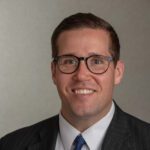
Treating substance use disorder is challenging in any setting—but ensuring access to treatment for those who are unsheltered unhoused or precariously housed requires creativity, persistence, and trust. This session shares Street Medicine Kalamazoo’s experience providing addiction care to unsheltered and precariously housed individuals. We’ll discuss how we engage patients outside traditional settings and utilize a harm reduction approach to meet patients where they are at. We’ll offer practical, street-tested strategies that can enhance addiction care in both clinical and outreach environments.
Prevention Has Purpose
Katie Newby, Prevention Specialist, Community Healing Centers

Prevention services are something that most people participate in at some point during their lives. D.A.R.E. – a popular universal program – incorporates scare tactics and police involvement, but recently, the field of prevention has been reexamined and given new focus. In this session, participants will learn what participation in services can look like for youth in all stages of use, how to engage with them effectively, how prevention and harm reduction go hand in hand, and how selective and indicated prevention services differ from universal services.
The Recovery Ecosystem
Dr. Andre Johnson, President/CEO, Detroit Recovery Project Inc

The Recovery Ecosystem is a holistic, person-centered framework that supports sustained recovery by addressing the full spectrum of an individual’s needs—emotional, physical, social, and spiritual. It recognizes that recovery does not happen in isolation, but through a connected network of relationships, services, and opportunities. Rooted in the principles of empowerment, equity, and community, the model integrates evidence-based treatment, peer support, harm reduction, housing, employment, education, and spirituality. By aligning internal motivation with external support systems, the Recovery Ecosystem transforms recovery from a clinical event into a lifelong journey of healing, purpose, and reintegration into community life.
Exploring the Short and Long-Term Impact to Children/Adults of Prenatal Alcohol/Substance Abuse Exposure
Jim Henry, Professor, Director, FASTER Assessment Program, Western Michigan University
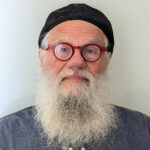
This presentation will explore both quantitative and qualitative research at both the national and local levels on the short and long-term neurodevelopment and functioning impacts of prenatal alcohol/substance exposure on children/youth/adults. It will provide interventions to build resiliency in children prenatally exposed focused on building relatedness through realistic expectations and a belief that everyone is doing the best they can.
Promoting the Use of Recovery-Oriented Language: Why Words Matter
Kristen DeVall, Professor, Sociology and Criminology, University of North Carolina Wilmington
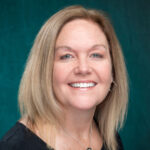
The question of why/how language is important to the work that is done within treatment courts and the larger criminal legal system is an emerging area of focus. Sociologists, linguists, and others have examined the role of language within our society and the influence it has on thoughts, attitudes, and behaviors. This presentation will begin with an overview of this work and answer the question of “what is language?” Second, the goals of both the criminal legal system and treatment courts will be outlined. Next, an overview of how language can serve as a vehicle by which we do/do not achieve these goals will be provided. Finally, a historical account of how language has changed over time will be reviewed. Specific attention will be paid to terminology practitioners and researchers should avoid using, as well as alternative words/phrases that promote recovery, healing, and wellness.
Re-entry with HOPE
Gwendolyn Hooker, CEO/Founder of HOPE Thru Navigation
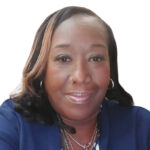
This session will highlight the ongoing work of Helping Other People Exceed (HOPE) thru Navigation’s work in navigating returning citizens to Housing, Recovery Services, Education, and Self-Sufficiency. We will showcase the Continuum of Care we have created with intentionality, compassion, and most importantly hope. Join us in learning the best practices we have developed, Tiny Houses of HOPE Updates, and are newest BIG Deal!
The Treatment of Substance Use Disorders and Behavioral Addictions within the VA: Current Approaches and Future Directions
Taylor R. Weststrate, Clinical Psychologist, Substance Abuse Residential Rehabilitation Treatment Program, Battle Creek Department of Veteran Affairs Medical Center
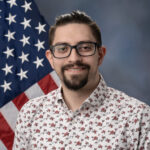
This presentation seeks to provide the audience with a brief overview of Substance Use and Behavioral addictions and their relationship with co-occurring mental health disorders within the Veteran population. Current evidence-based approaches, limitations within the field of substance use disorder treatment, and directions for new and progressive treatment approaches will be discussed.
“Why Am I Here? This Is Sus.” Engaging Adolescents in the Precontemplative Stage of Substance Use Treatment
Chandelle Johnson, Outpatient Clinical Supervisor, Community Healing Centers
Victoria Orbe, Elizabeth Upjohn Community Healing Centers

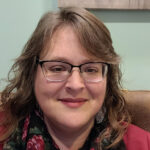
Adolescents in the pre-contemplative stage of substance use treatment often enter services with low motivation and high skepticism—cue the classic “Why am I here?” This skills-based session explores developmentally appropriate strategies for connecting with youth who aren’t yet considering change. Participants will learn how to build rapport, introduce harm reduction, and define realistic treatment goals. Designed for interdisciplinary professionals—treatment providers, legal staff, educators, and medical personnel—this workshop offers practical tools for engaging “resistant” teens. Attendees will leave with fresh insights and more confidence in meeting adolescents where they are (even when where they are is “this is sus”).